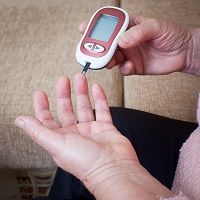Article
ICYMI: The 10 Best Health Stories from November
Author(s):
The MD Magazine editors rounded up the 10 best stories from November – did you read them all?

The presidential election’s impact on healthcare could have probably filled MD Magazine for the entire month, but (thankfully) there was a lot more going on in the world of medicine! Some of the highlights include: NHL player reveals multiple sclerosis diagnosis, marijuana can cause a serious heart problem, and drinking too many energy drinks sent one man to the emergency room.
Along with covering everyday healthcare news and videos, the editors at MD Magazine have been traveling to conferences this month:
- 2016 American College of Rheumatology/Association of Rheumatology Health Professionals Annual Meeting (ACR 2016) in Washington, DC
- American Heart Association’s Scientific Sessions 2016 (AHA 2016) in New Orleans, LA
Don’t forget to stay up-to-date by connecting with us on Facebook, Twitter, Instagram, and LinkedIn!

“November 7, 1991 was a life changing day that I never saw coming,” Earvin “Magic” Johnson wrote on his site, The Playbook.
That was the day that Johnson was diagnosed with the human immunodeficiency virus (HIV) Although the acronym still carries a heavy burden, it held even more weight 25 years ago.
Back then it was considered to be a death sentence and a disease called “gay cancer.” Many early diagnoses were traced back to blood transfusions, especially in babies. But Johnson was one of the first straight public figures to come out with the diagnosis — and at the time, he had only been married to his wife, Cookies, for 45 days.
>>> Continue reading this story

Diabetes is one of many risk factors associated with poor cardiovascular health — reports show diabetes patients are almost 50% more likely to develop heart disease. For men afflicted with type 2 diabetes and at high risk for heart attacks; however, relief might be found in an unlikely source – the erectile dysfunction drug Viagra (sildenafil).
Type 2 diabetes patients struggle with high blood glucose levels that can damage nerves and blood vessels, factors that could trigger heart attacks, strokes, and cardiovascular diseases. And, reports have shown “the association of erectile dysfunction with cardiovascular disease increases in the presence of type 2 diabetes.”
>>> Continue reading this story

"Since the 2015 playoffs, I've been struggling to understand what was going on with my body. Again during the past few weeks, it felt like something wasn't right," reads the official statement issued by the NHL’s Carolina Hurricanes on behalf of player Bryan Bickell. "Obviously this is a bit of shock for my family and me, but I am hopeful I will be able to return to the ice and continue playing the game that I love."
Bickell will be taking time away from hockey to determine his course of action after being diagnosed with multiple sclerosis (MS).
>>> Continue reading this story

Colorado voters have approved a proposal that would allow physicians to prescribe lethal doses of medication to be taken by a terminally ill adult patient.
The state is now the sixth to have laws permitting physician-assisted suicide. The others are California, Vermont, Oregon, Washington, and Montana.
The measure, known as Proposition 106, was approved by a wide margin, with 65% of voters saying yes and 35% no.
>>> Continue reading this story

Patients with diabetes face a number of challenges in their daily life, especially monitoring their blood glucose levels. There is work being done in the medical community to monitor other potential issues that can affect quality of life overall and how to address them.
Kimberly A. Driscoll, PhD, from the Barbara Davis Center for Diabetes at the University of Colorado chaired a session on this topic during the annual American Diabetes Association's Scientific Sessions in New Orleans, LA. Driscoll said doctors can be so busy focusing on numbers to treat their patients that they forget to look at the whole person to help them manage the condition and life outside of it.
>>> Watch the exclusive interview with Kimberly A. Driscoll, PhD

While some Americans cheer and others sulk at the outcome of the 2016 Presidential Election (spoiler: Donald Trump is our new POTUS), others are just as interested in the various state ballot initiatives focused on marijuana.
Twenty-five states and the District of Columbia already have legalized medicinal marijuana and only Colorado, Washington, Oregon, Alaska, and DC have legalized it for recreational use. While all states differ on which health conditions warrant a pot prescription, the common ones are chronic pain, glaucoma, seizures, and the human immunodeficiency virus (HIV).
>>> Continue reading this story

Some people favor coffee while others turn to energy drinks for their daily boost. But with all of that caffeine and sugar, it’s no wonder that the latter often gets a bad rep. Now, we can see just how potentially dangerous overconsumption of these beverage kickers can be with a documented case of acute hepatitis.
Drug-induced liver injury (DILI), caused by exposure to some prescription and over-the-counter drugs, is the cause of about 10% of all cases of acute hepatitis. This is what happened to one 50-year-old man, except instead of prescription drugs, his acute hepatitis was caused by consuming energy drinks — and a lot of them.
>>> Continue reading this story

Many physicians have long considered vitamin D to have a myriad of health benefits, recommending patients to take supplements or increase their intake of vitamin D-enriched foods. And, recently, researchers from the University of Colorado Anschutz Medical Campus discovered high doses of vitamin D helped older, long-term care residents reduce the risk of acute respiratory illness (ARI).
Published in the Journal of the American Geriatrics Society, the results were especially relevant, as this discovery could help decrease one of the primary causes of debilitation and death among patients in nursing homes and long-term care facilities.
>>> Continue reading this story

Published in JAMA Pediatrics, a new investigation of allergens in the learning environments and homes of schoolchildren sought to document common factors in the exacerbation of childhood asthma morbidity. The School Inner-City Asthma Study is a prospective cohort study led by William J. Sheehan, MD, of the Boston Children’s Hospital.
The final results of the study included 284 children from about three dozen schools in the northeastern United States. Each year between March 2008 and August 2013, about 70 students with asthma representing seven different schools were enrolled and clinically studied for the course of the year.
>>> Continue reading this story

Even as states move to legalize the use of cannabis, researchers are just beginning to track its physiological impact on users.
In a study presented today at the American Heart Association's Scientific Sessions in New Orleans, LA, Amitoj Singh, MD, and colleagues at St. Luke's University Health Network in Bethlehem, PA, found it can have a harmful effect on the heart.
In a retrospective study, the authors found younger marijuana users were twice as likely as non-users to experience stress cardiomyopathy, a sudden weakening of the heart muscle. The condition is usually temporary, but can result in cardiac arrest and to require an implanted defibrillator.





